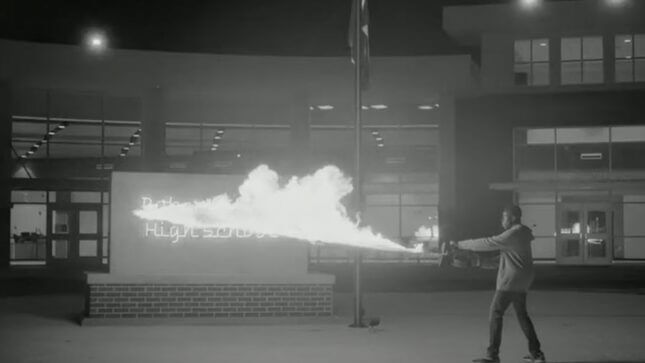Atlanta‘s ‘Rich Wigga, Poor Wigga’ Episode Challenges What It Means to Be ‘Black Enough’ in America
The latest episode of the FX series delves into diaspora wars and misplaced identities.
EntertainmentTV

After an almost four-year hiatus, the long-awaited arrival of Atlanta’s third season is upon us. Each episode reflects the ongoing debates around race and the authenticity of Blackness going on in the world right now. And, much in like real life, these tense discussions in the show usually play out on Twitter—where the raging diaspora wars pit Black Americans and Black people from other parts of the world against each other. There’s never any resolve, because that would have to formally acknowledge the real problem: white supremacy.
Donald Glover, the series creator, writer, and star, is definitely in activism mode this season, as recent episodes have been rife with curated vignettes about common microaggressions. In the season’s penultimate episode, hilariously titled “Rich Wigga, Poor Wigga,” we’re introduced to Aaron, a young biracial man who outwardly passes as white. We quickly find out how he leverages that privilege: Aaron is on the verge of his high school graduation and hell-bent on gaining admission to the same college as his white girlfriend. Unfortunately for him, his Black father isn’t offering much assistance in that arena. Instead, he corrects his son’s dangerous naïveté about police brutality and demands rent in the event that his son ends up at home, after all.
Since his dad isn’t interested in helping to fill out financial aid forms or providing any kind of counsel on how his son’s college tuition might be paid, Aaron finds himself in a slump until a distinguished Black alumnus, Robert S. Lee (not to be confused with the Confederate general Robert E. Lee), enters the fray. Lee is played by none other than the late Kevin Samuels—a dating guru who became a household name thanks to his controversial viral YouTube videos and died in early May. Unlike the real-life Samuels, who often berated and degraded Black women in his videos, Samuels’ Lee is a multi-millionaire who returns to his high school to bless the latest graduating class with an offer to pay the college tuition of only the Black students. But there’s a catch: He wants to change the high school’s name from “Stonewall Jackson High” to his very own.
Aaron is desperate to get his hands on the scholarship fund and is even willing to finally claim his Blackness, if that’s what it takes to do so. But he falls short during a meeting with Lee and his associates, a group of Black middle-aged men. They gather to judge whether or not the young man standing before them is Black enough to earn a full-ride scholarship to the college of his choice. After a series of random questions blatantly contrived to revoke the membership of those claiming to be Black, Aaron gets a “no.” The judges determine he isn’t eligible for the scholarship because he isn’t authentically Black enough.
-

-

-

-

-

-

-

-

-

-

-

-

-

-

-

-

-

-

-

-

-

-

-

-

-

-

-

-

-

-

-

-

-

-

-

-

-

-

-

-








































